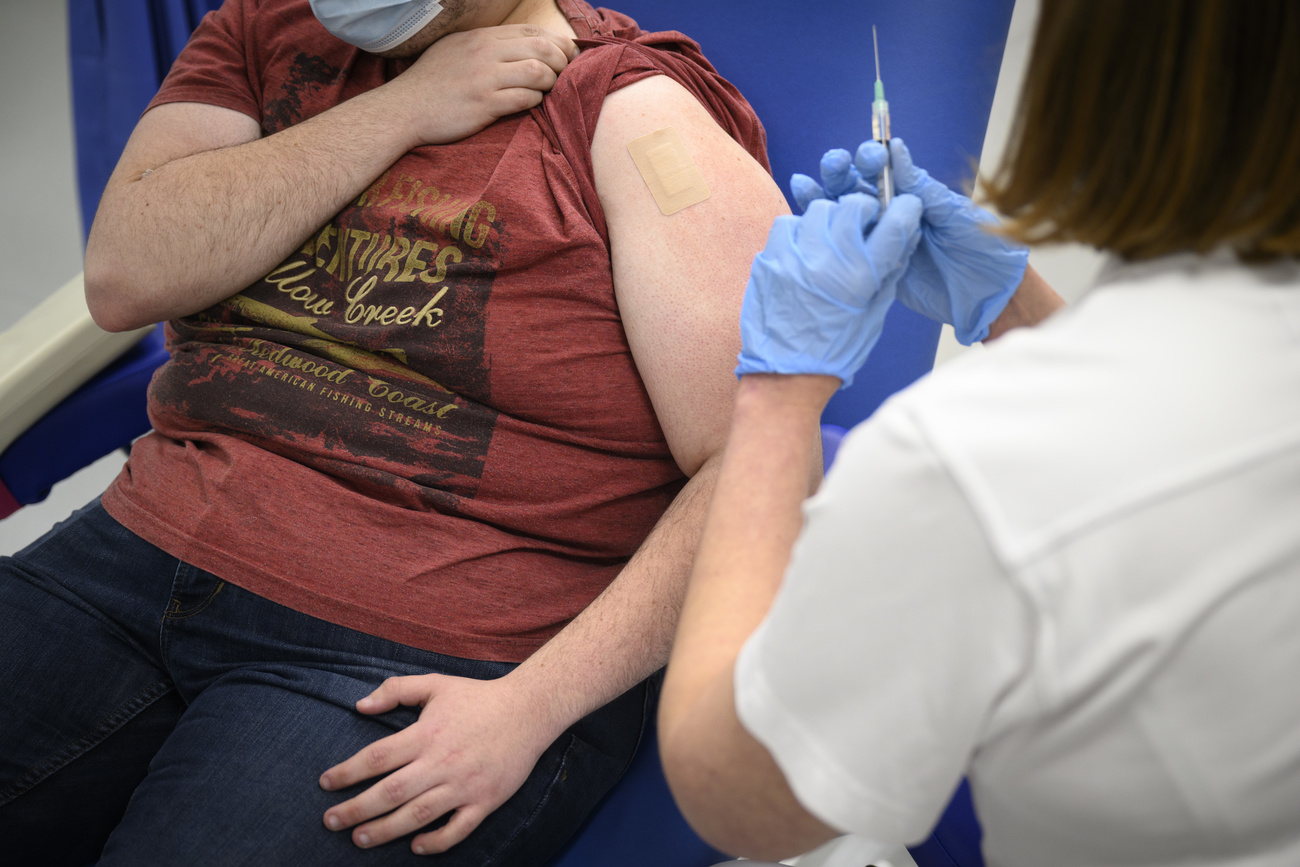
The race to launch a pill for weight loss

Despite success with injectable drugs pharma companies are investing heavily in tablets, long considered the holy grail of obesity medicine.
During the First World War, women working in munitions factories began to dramatically lose weight. These so-called Canary Girls were handling a yellow toxic chemical known as DNP, which sped up their metabolisms and enabled their bodies to burn fats faster.
Soon, drug companies were selling DNP, which is short for 2,4-Dinitrophenol, in pill form. Such was the demand for a weight-loss drug that sales flourished even though in high doses the pills caused cataracts, skin lesions and even death.

From extracts of animal thyroids in the late 19th century to the fen-phen appetite suppressants of the 1990s, people’s insatiable desire to slim down has led them to experiment with a multitude of inadvisable drugs.
The latest weight-loss drugs have transformed the way the pharmaceutical industry makes and sells medicine globally and in Switzerland. Billions of dollars are now being poured into developing drugs to fight obesity. Basel-based Roche is among the companies in the race to develop a weight-loss pill. Click here for more articles on Swiss pharma.
This box was added by Swissinfo/jdp.
At the same time, scientists have been labouring to create safe medicines to treat obesity. Demand has only grown more acute as the prevalence of adult obesity has risen, doubling since 1990 and causing huge damage to people’s health and soaring costs for healthcare systems.
Scientists finally had a breakthrough with the weight-loss drugs Wegovy and Zepbound, injectables that were approved in the US in 2021 and 2023. But researchers have continued to hunt for pills, long considered the holy grail of weight-loss medicine due to the convenience of oral administration and because many people find injections off-putting.
The challenge is far harder than it sounds. Researchers have spent decades investigating ways to evade a gut that wants to break down the drugs and stop them before they work. In just the last couple of years, large pharma companies including Pfizer, Amgen and Roche have scrapped potential obesity pills after they disappointed in trials.
But this year the problem may have been solved. Both the Danish drugmaker Novo Nordisk and US pharmaceutical company Eli Lilly, the makers of Wegovy and Zepbound respectively, have reported positive trial results for their pills and expect to win approval for them within the next year. Sam Ulin, a partner at life sciences consultancy ClearView Healthcare Partners, says the pills represent a “critical step forward”.

More
Rising Swiss obesity levels: can new fat loss drugs like Ozempic and Wegovy help?
“Injectables have established prescription weight loss as standard practice — and now orals can make it commonplace and routine,” he says.
Weight loss pills are expected to be blockbuster drugs, with estimates ranging from them taking a fifth to a third of the more than $100bn forecast to be spent on obesity medicines each year from 2030. Eventually, they could provide a way for other companies to break the duopoly of Novo and Lilly, who dominate the market.
But whether the pills will be revolutionary or more of a niche alternative is contended. Patients have proved surprisingly comfortable with injections and, within a few years, the tablets will have to compete with cheaper off-patent versions of the current drugs.
Just as investors have become jittery that the current weight-loss market may not be as promising as they first hoped — sending shares in Novo tumbling in the last year — some worry that the introduction of the first pills may not end up being transformative.
But pills might prove to have a useful adaptability that the injections lack. Large competitors to Novo and Lilly are investing in oral obesity drugs because they believe they can combine them with medicines for commonly related diseases in fields where they already sell drugs, such as for heart or kidney conditions.
Sharon Barr, executive vice-president for biopharmaceuticals research and development at AstraZeneca, says weight-loss pills have “the potential to radically change the way we use these [obesity] treatments”.
“If we think about these treatments as simply for obesity, we are missing the interconnected nature of this disease,” she says. “They will be more convenient, but critically they unlock the opportunity for new fixed-dose combinations that can tackle multiple metabolic, cardiovascular and renal diseases.”
Long journey
It has been a long journey to get close to this vision, one that started in the 1990s. Back then, scientists focused on finding diabetes treatments started experimenting with the hormone GLP-1, which causes the release of insulin and tempers fluctuations in blood sugar levels. When their mice began to lose weight they discovered that GLP-1 reduces appetite.
The GLP-1 drugs overcame the problems of previous generations of weight-loss medicine. They worked — patients typically lose between 15 and 20 per cent of body weight — and they came with less serious side effects, mainly muscle loss, nausea and vomiting for some patients.

More
Swiss regulator and media clash over weight-loss drugs
But when scientists attempted to make them in pill form they hit a wall. The synthetic version of the hormone, a mini-protein called a peptide, stopped working when it met the acid of the stomach. Frank Greenway, chief medical officer of Louisiana’s Pennington Biomedical Research Center, compares peptides to the proteins that make up steak. “You eat a piece of steak and it digests,” he says.
Novo Nordisk, which had started work on an obesity pill in the early 2000s, landed on a potential solution in 2007. That year it started working with Emisphere, a New Jersey-based company that it eventually acquired in 2020. Emisphere had developed a barrier called a SNAC, which protects the peptide from stomach enzymes, and helps it be more easily absorbed by the gut.
Improving health beyond obesity
Combining SNAC with semaglutide, a synthetic version of GLP-1 and the active ingredient in Wegovy, helped Novo create Rybelsus, a tablet for diabetes patients that was approved in 2019. An anti-obesity pill using the same mechanism showed in a late stage trial this year 16.6 per cent weight loss over 64 weeks, about the same as the injectable.
One advantage of using the same active ingredient, rather than creating a pill from scratch, is that Novo Nordisk has already invested in proving that semaglutide improves health beyond obesity, such as preventing heart attacks and reducing the risk of kidney failure. Novo is hoping that the US Food and Drug Administration will recommend that the drug reduces the risk of serious cardiac events, based on data from a trial of the injectable, which should make it more appealing to doctors.
Prashant Yadav, senior fellow for global health at the Council on Foreign Relations, explains that with SNAC the company has found a “tried and tested technology”, since it has been used for vitamins for many years.
Novo is also using SNAC for another pill that is in development, amycretin, which mimics both GLP-1 and another hormone, amylin, which promotes a feeling of fullness. Martin Lange, Novo’s chief scientific officer, says the company believes this pill could offer as much weight loss as another injectable the company is working on, which also uses amycretin, that showed a potential for 24.3 per cent weight loss after 36 weeks in a trial.
Downsides
But not all the problems have been solved. Patients taking Novo’s pill have to avoid drinking any liquids, eating or taking other drugs within half an hour of swallowing. Analysts at Barclays say this restriction had proved particularly tricky for diabetes patients, who may need to take more than one medication. “When we talk to doctors, they generally are very negative on Rybelsus,” the analysts say.
Lange says trials show this regime does not seem to be a problem and that patients must be adhering to it as they are losing weight. “You get up in the morning, you take your tablet with a glass of water, you take your shower, and then you go downstairs and prepare your breakfast. It’s basically a matter of habit,” he says.
Another drag on Novo’s weight loss pill could be manufacturing. Analysts estimate that a week’s worth of pills needs between three and 10 times as much semaglutide as a single weekly injection.
Yadav says that manufacturing enough semaglutide is likely to be a hurdle. “If we are talking about a large-scale shift to orals and the need for three or four times more API [active pharmaceutical ingredient] capacity because of higher dosing, then it will be a constraint,” he says.
Novo already had to stall the launch of the Wegovy injectable as demand soared beyond its projections, one of the factors behind it losing its lead in the lucrative US market to Eli Lilly.
But it says it has improved its processes and lowered the doses in the pill, once a trial showed the lower dose was as effective as the injection, and is still “dedicated” to exploring new ways of increasing how much of the drug gets to work in the body.
“We have built sufficient capacity of oral semaglutide in the US market and believe we can supply to the US upon approval,” the company adds.
Eli Lilly takes different route
Across the Atlantic, Eli Lilly has taken a dramatically different route to create its weight loss pill, which it hopes to file for approval later this year.
The company has licensed a new compound called orforglipron from Japanese biotech Chugai partly because it saw the drawbacks of trying to convert a peptide into a pill.
Kenneth Custer, president of Lilly’s cardiometabolic health division, describes peptide-based pills as inefficient, where as little as 2 per cent of all the drug manufactured actually has an effect in the body.
But he acknowledges that finding a new “small molecule”, which is needed to make a conventional pill based on chemical synthesis rather than peptides, is also a challenge. “Those are hard drugs to discover,” he says. “If you look, every year there are very few examples of new classes of oral, small molecule medicines that are used broadly.”
It is a problem that the market does not think Lilly has entirely solved. When the company released trial results in August showing that patients taking orforglipron lost an average of 12.4 per cent of their body weight, its shares fell 14 per cent. Investors were disappointed that it was at the lower end of their hopes for the drug, and showed less weight loss than Novo’s oral semaglutide, even though the trials are not directly comparable.
But Lilly could still win the battle if it is able to beat Novo on manufacturing and speed the drugs to market. As early as the end of last year, Lilly had inventory worth over $500mn stockpiled and now has billions of pills waiting in warehouses.
Cracking open the duopoly
Yadav says making a small molecule pill is “completely different” because it relies on chemical synthesis which can be quickly scaled up, whereas semaglutide is made combining both chemical and biological processes. Biological processes need tighter controls because relying on living yeast or bacterial cells to produce the large, complex molecules, is inherently more variable.
Other companies are also hoping to use pills to break into the weight-loss market that has so far been dominated by Novo and Lilly. Several large pharma companies still have weight-loss pills in clinical trials, including AstraZeneca and Roche.

More
Roche’s big bet on big diseases
Start-ups are hoping to make drugs with other advantages. There are companies working on long-acting molecules, so people only have to take pills every couple of weeks; drugs that promise fewer side effects and protect against muscle loss; and medicines that would be easier to mass produce for developing markets.
Jyothis George, chief medical officer of UK-based start up NodThera, says consumers will benefit from the “natural revolution” of the market fragmenting. “I think the way to crack open this duopoly is to actually innovate,” he says.
Raymond Stevens, who is the chief executive of Structure Therapeutics and has worked on GLP-1s for 20 years, thinks pills will help the obesity market become far more accessible, comparing it to the market for the common cholesterol-lowering drugs statins when Pfizer’s Lipitor was released later but ended up dominating.
“The GLP-1 field is like statins on steroids,” he says. “We are going to see more competition in this space, just like statins, where Lipitor was the sixth generation, 10 years later, and provided a better medicine and, I think, a more accessible medicine.”
How big is the market?
Despite the excitement, it is hard to assess how large the market for weight-loss pills will become. Drugmakers have already misjudged the size of the obesity market — in both directions.
At first, Novo Nordisk failed to manufacture enough injectables for soaring demand. Then, in the last year, the market surprised again as growth in demand slowed.
Ulin, at ClearView Healthcare Partners, says historically an oral would have been seen as a “more compelling option from a commercial perspective”. But he says that the new injectables, where the needle is hidden in a pen-like device, are easy to use and only need to be taken once a week. “There’s a very significant consumer preference and acceptance now of the injectables,” he says.
In a survey of thousands of patients and hundreds of prescribers, ClearView found there are still some needle-phobic people who, with pills, are now likely to use a weight loss drug for the first time. “It could be as high as a 30 per cent addition, just overnight, of people who’ve been waiting for an oral medication,” he says. But he adds: “It’s not going to double the marketplace.”
Novo Nordisk’s Lange agrees that the injectable will continue to be the biggest seller, but says the oral will be a “substantial segment”.
Lucas Montarce, Lilly’s chief financial officer, said at a conference in September that of 150mn potential patients in the US who would qualify because they are sufficiently overweight or obese, “many of them are actually not even thinking about the [weight-loss drugs], because they don’t like injectables. So this will serve significantly those patients.”
What price?
If orforglipron is approved next year, Lilly’s sales are estimated to be $3.2bn in 2027 and $6.8bn in 2028, according to Evaluate Pharma.
In practice, patients could switch between the options. Some doctors see the oral as a better option for people who do not need to lose a huge amount of weight, or for people to take after they have used an injectable to lose the weight and want to keep it off.
Price will have a big impact on how the market develops, and neither Novo nor Lilly has indicated how much they will charge for the pills. Initially, neither will want to cannibalise the market for their own injectables.
However, once there are new entrants, prices could fall and the market could expand. Naveed Sattar, a professor who specialises in obesity and diabetes at the University of Glasgow, says the pills could eventually help health systems to recommend the drugs for people at lower weights.
“If you look to five to 10 years ahead, there almost certainly should be three or four more drugs in the market. And one would hope with market competition, what should happen is, as the prices come down, the NHS and other health authorities will be able to afford to treat more people,” he says.
Weight-loss drugs have already reshaped how the pharmaceutical industry sells medicines. Drugmakers more familiar with marketing to doctors are now using celebrity and influencer marketing on social media.
The future success of weight-loss pills may lie less in how well they work than in how well they are advertised. “The ways in which these therapeutics are commercialised is really being rewritten, and that will continue to shape the obesity market, and honestly probably have implications beyond the obesity market over the next decade,” says Ulin.
Additional reporting by Patrick Temple-West in New York
Copyright The Financial Times Limited 2025

In compliance with the JTI standards
More: SWI swissinfo.ch certified by the Journalism Trust Initiative
















![The four-metre-long painting "Sonntag der Bergbauern" [Sunday of the Mountain Farmers, 1923-24/26] had to be removed by a crane from the German Chancellery in Berlin for the exhibition in Bern.](https://www.swissinfo.ch/content/wp-content/uploads/sites/13/2025/12/01_Pressebild_KirchnerxKirchner.jpg?ver=14ffbad8)













You can find an overview of ongoing debates with our journalists here . Please join us!
If you want to start a conversation about a topic raised in this article or want to report factual errors, email us at english@swissinfo.ch.